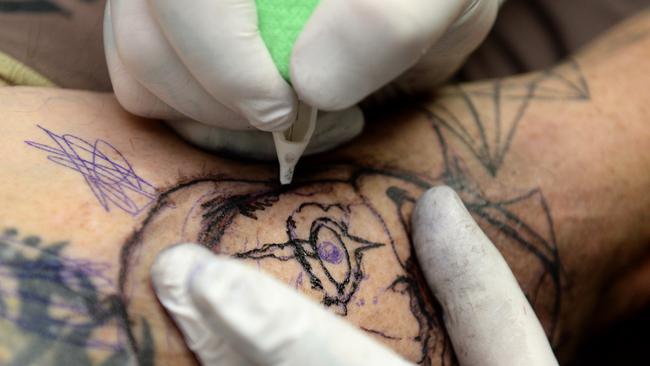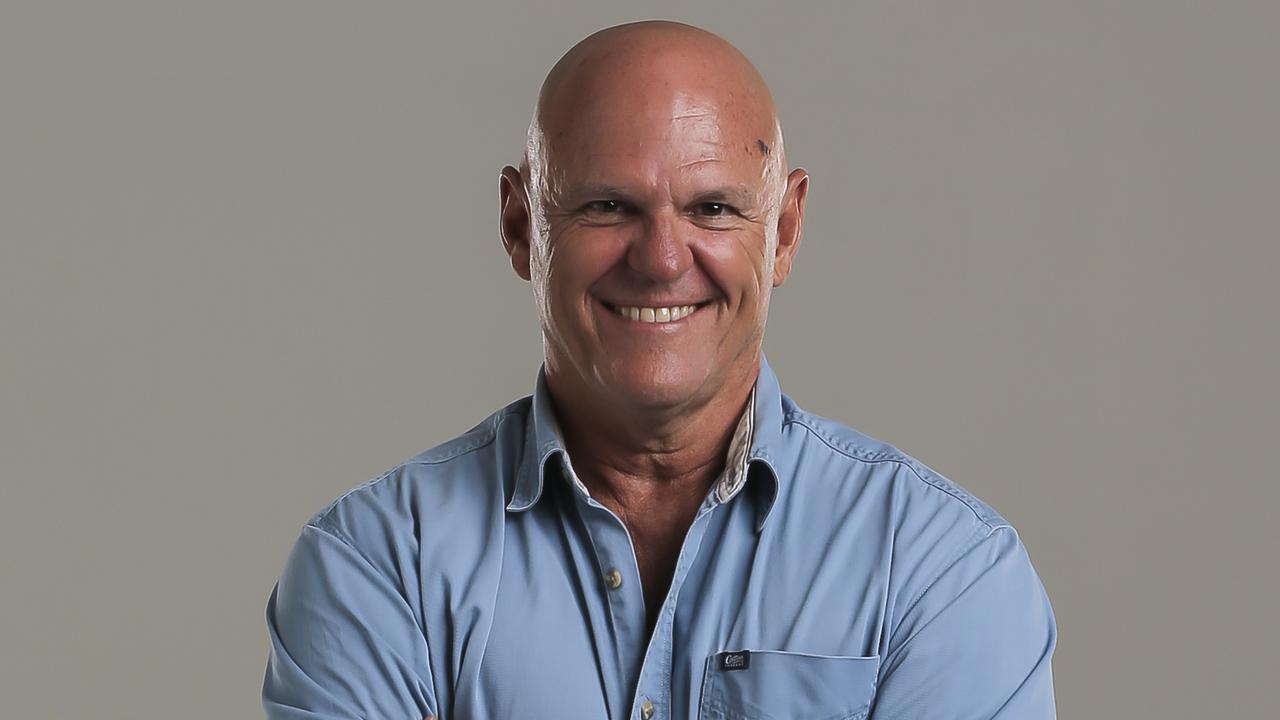Opinion: For Queensland school leavers heading to Bali, the decision to get a tattoo may be the worst of their lives
SCHOOLIES travelling to Bali have been warned of the consequences of getting a tattoo or body piercing to commemorate their so-called rite of passage.

Opinion
Don't miss out on the headlines from Opinion. Followed categories will be added to My News.
WHY you would want to get a tattoo in the first place eludes me, but for Queensland school leavers heading to Bali in less than two weeks, the decision to ink may be the worst of their young lives.
On the same day last week that the Department of Foreign Affairs and Trade issued a new terror alert – warning schoolies travelling to Indonesia of attacks from jihadists wanting revenge on the West – a reader called me.
She was upset, angry and frustrated.
Her friend’s son, a promising first-year medical student, had gone to Bali and, on a whim, had a tattoo done.
Shortly after arriving home, he complained of feeling severely tired and generally unwell so took himself off to his family GP.
The doctor, who’d known him since he was a boy, spotted the tattoo and ran blood tests.
The young man half-expected to be told he had glandular fever or chronic fatigue syndrome. He was instead pronounced HIV positive.
“His life is in ruins,” the caller said. “The whole family is just devastated.
“I’ve phoned my local member, the health minister, the education department, but no one is interested.
“Kids are told of the dangers of drugs and sharing needles and of unprotected sex, but tattoos don’t rate a mention.”
This time last year, DFAT warned schoolies of the risks associated with drugs and alcohol, including drink spiking, water and road safety, and sexual assault.
Now, it’s terrorism as well, yet not tattoos given by unregulated operators using filthy equipment on crowded beaches or in dingy back streets.
Alun Richards is the director of blood-borne viruses and sexually transmittable infections in the Communicable Diseases Unit of Queensland’s Department of Health.
His advice for schoolies – and anyone else for that matter, including “toolies”, “droolies” or “foolies” (people who attend Schoolies Week but are not school leavers) – is to play it safe. “In Queensland we regulate tattooists and body piercing facilities,” Richards says. “Most licensees here are doing it correctly so the chance of catching HIV or hepatitis C, B or A is very low, however Indonesia is not as developed and standards of regulation are not as high.”
He tells me the Government has “no record of any Queenslander contracting HIV from getting a tattoo in Bali”.
In actual fact, the only known Australian case is that of a West Australian man in 2011.
That said, the problems with tattoo equipment have been well documented.
Eleven years ago, an extensive UK study found certain types of micro-pigmentation equipment could not be cleaned well enough to stop the spread of infection.
Professor Norman Noah, of the London School of Hygiene and Tropical Medicines, said: “Unfortunately, the three most important risk infections – hepatitis B, C and HIV – are so contagious that simple cleaning and disinfection are inadequate for parts such as needles, which are in direct contact with the skin.”
Although needles may be replaced between customers, pigment residues – which may mix with blood and body fluids – can remain on other parts of hand-held machines.
While HIV is no longer the death sentence it once was before antiretroviral drugs, and hepatitis can be treated, you don’t want either.
Schoolies living it up with scant regard for consequences are easy targets.
Queensland Health’s Richards says: “Seventeen-year-olds are not necessarily being sensible committing to a tattoo they will have for the rest of their life.
“When people are coming to you on the beach, how do you know they are trained? They can do what they like.”
Alarmingly, HIV and AIDS infections are on the rise in Bali, with the Indonesian government reporting that three-quarters of cases are with heterosexuals and 40 per cent of all people infected, believed to be about 7300, are aged between 20 and 29. The Australian Medical Association has previously warned of the danger of getting tattoos or body piercings in Bali, comparing it to unprotected sex, but it’s time for the Government to weigh in.
Along with DFAT alerts warning travellers to consider their security at bars, clubs, restaurants, hostels, cinemas and sporting events around the world, particularly in South-East Asia, it should add body piercings and tattoos.
Unfortunately, for some, such a warning will be too late.
Kylie Lang is the editor of Qweekend magazine, every Saturday in The Courier-Mail
twitter: @kylie_lang



